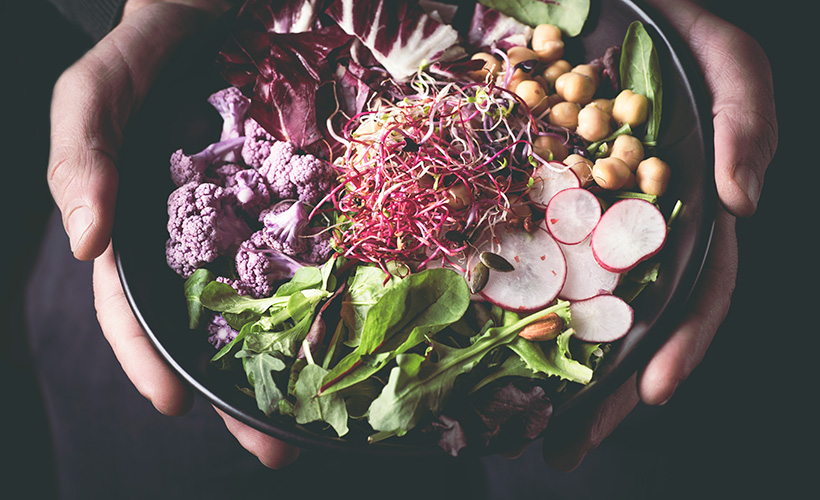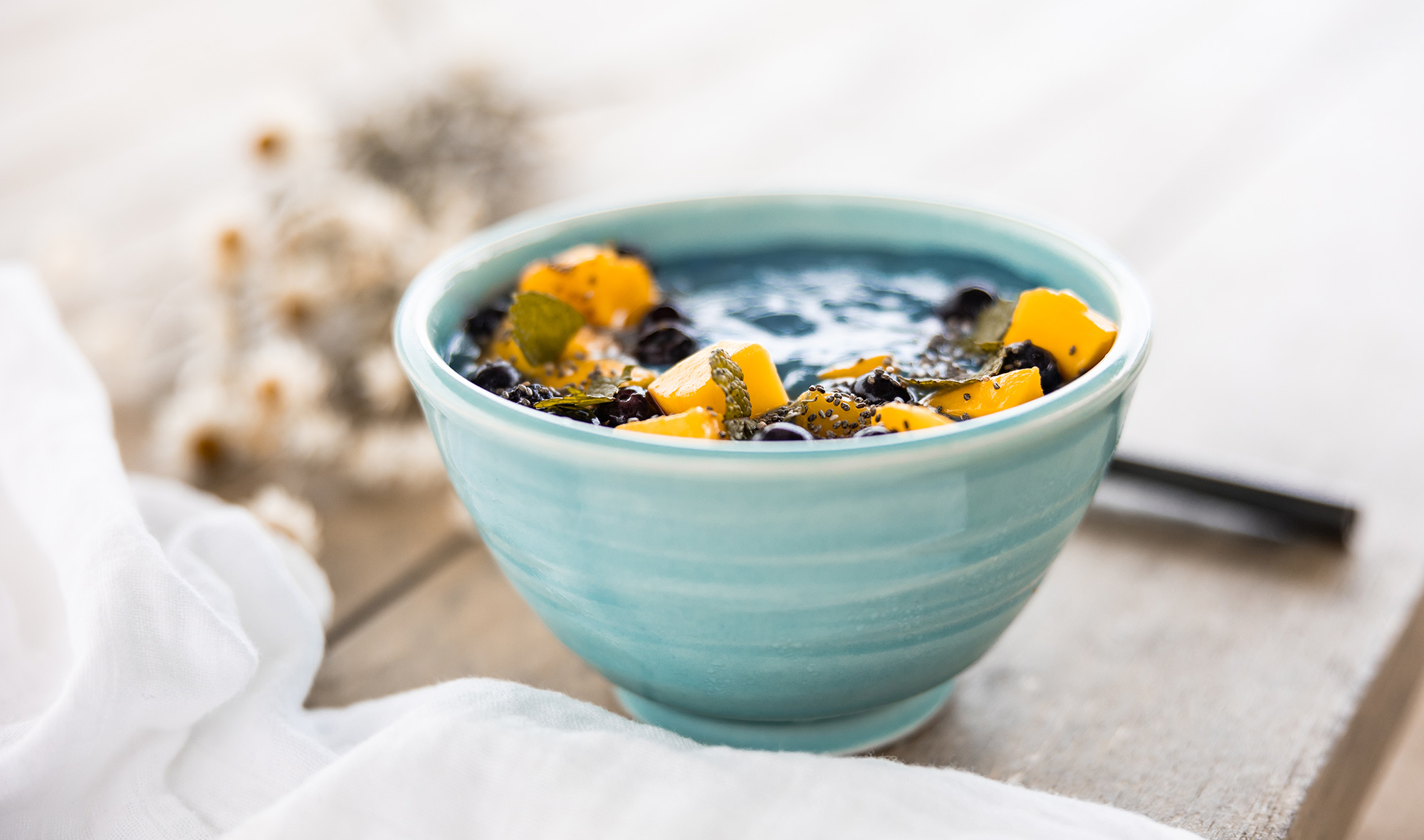New-Zealand’s Mental Health Awareness Week runs from 8th October – 14th October. This year’s theme is; Let nature in, strengthen your wellbeing – M. te taiao kia whakapakari t.u oranga! Embracing, enjoying and connecting with nature can undoubtedly help nurture our wellbeing, particularly our mental state. We also know that there is an important connection between nutrition and mental health. In particular, eating certain whole, natural foods can help to nourish your mind and ensure a healthier mental state. As a general guide, try to eat a wide variety of food and if possible, eat it in its natural state; from the ground, on vines, off bushes and trees. Meat and poultry should ideally be organic, and free-range. Below are 8 potentially mood-boosting foods that you may like you include in your diet to support your mental health…
1. Salmon
According to research, people who are deficient in omega-3 fatty acids may be more susceptible to depression and low mood. Omega-3 fatty acids make up a large percentage of our brain tissue and it is vital to nourish the brain with a good supply of these fatty acids via the diet. Salmon is one of the best sources of DHA omega 3. It is also high in B vitamins, protein, vitamin D, and potassium. Salmon also provides tryptophan which converts to serotonin (an important mood regulator) in the brain. Regularly eating salmon and other oily fish such as mackerel and sardines can help to keep your brain healthy and improve your mood by ensuring the brain’s messaging chemicals (neurotransmitters) can work more effectively.
2. Chia seeds
These tiny but mighty powerhouses contain significant levels of omega 3, the essential fatty acid that our brain loves. Gram for gram, chia seeds have more than double the omega 3 than salmon! Chia seeds also contain good levels of calcium, magnesium, and potassium. They are an excellent vegetarian source of omega three fatty acids and can be mixed onto cereal, sprinkled on salads or blended into smoothies.
3. Eggs
Eggs are one of the few good food sources of vitamin D. Research has shown that low levels of Vitamin D are often linked to depression and other mental health disorders. Getting outdoors and in the sunshine is a great way to get a daily dose of vitamin D, but it is also necessary to get some via the diet. Eggs are a great choice!
4. Oysters
Oysters have a sea of benefits when it comes to your mental health. Oysters are very high in zinc, which is essential for energy production and brain health. Research has shown that low zinc levels are common amongst those suffering from depression. Oysters also contain a protein that is rich in the amino acid tyrosine. The brain uses tyrosine to produce the chemicals needed to enhance mental function and elevate your mood. Oysters are also a good natural source of vitamin B12, calcium, and magnesium -all of which are vital for a healthy mental state and body as a whole.
5. Brazil Nuts
Like many other nuts, Brazil nuts are an excellent source of vitamin E, magnesium, and tryptophan. However, the thing that distinguishes the brazil nut from all other nuts is its high selenium content. As a comparison, six brazil nuts have 537 mcg of selenium (compared to 6 almonds or cashews which respectively have about 0.2 mcg 0.7mcg of selenium). Studies have shown that people who are low in this mineral have increased rates of depression, irritability, anxiety and tiredness. It only takes three Brazil nuts to get your recommended daily allowance (RDA) of selenium.
6. Bananas
Bananas contain the amino acid tryptophan as well as decent levels of vitamins A, B6 and C, fibre, potassium, phosphorous, iron and carbohydrate. Mood-boosting carbohydrates assist in the absorption of tryptophan in the brain, while vitamin B6 helps convert the tryptophan into the mood-lifting hormone or “happy hormone”, serotonin. Serotonin helps to boost your mood and also aids sleep. Due to its ability to help raise serotonin levels, tryptophan intake has been suggested in the treatment of a variety of mental health conditions, such as insomnia, depression and anxiety.
7. Lentils
Lentils are a complex carbohydrate and, like bananas, help to increase the brain’s production of the feel-good neurotransmitter serotonin. Adequate serotonin levels can significantly contribute to a happier state of mind and reduced anxiety. Lentils are a good vegetarian source of protein and by helping to stabilise your blood sugar levels, they in turn can help to keep your mood even (low blood sugar levels can lead to the un-scientific condition we are probably all familiar with, “hangriness”). Plus, lentils are high in folate. Depression has been linked to deficiencies in folate.
8. Poultry
Chicken and turkey breast can also help increase your intake of the amino acid tryptophan. Tryptophan helps to make the mood regulator serotonin, and also helps to make the hormone melatonin, which regulates sleep. Like most of us can no doubt attest to following periods of poor sleep, quality sleep is vital for a healthy mind! Lean poultry also contains the amino acid tyrosine, which can help reduce symptoms of depression. Tyrosine is used in the body to make the hormone adrenaline – low levels of which have been associated with depression.
The core goal of mental health nutrition is to eat nutrient-dense food, as part of a diet containing a wide variety of whole, natural foods. Avoiding processed foods, foods high in sugar, plus alcohol and caffeine are also important considerations. Enjoy increasing some of the above list of foods in your diet, and don’t forget to get out and about in nature wherever you can either! M. te taiao kia whakapakari t.u oranga!
Note: When it comes to preventing or treating mental health disorders, a multifaceted approach must be taken. A healthy diet is a great foundation, but if you suffer from depression or any other mental health disorder, please speak to your health professional about the diet and treatment protocol that is best suited to you.


















Community